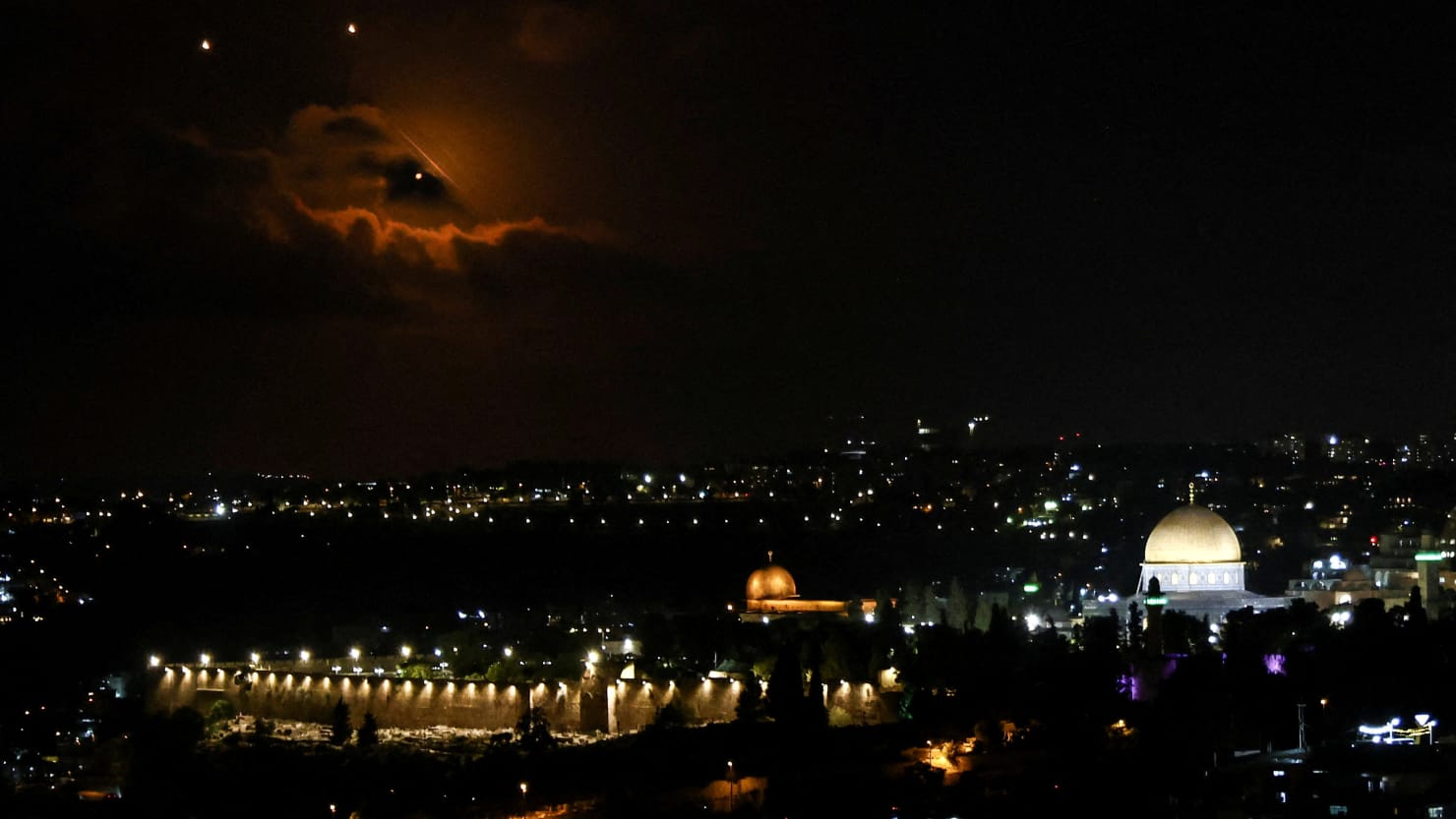Dramatic footage captured the moment Israel’s air defense systems failed to intercept some of the estimated 180 ballistic missiles fired by Iran on Tuesday.
People in clips posted to social media can be heard gasping in horror as missiles—so often intercepted above the night sky—were able to careen downward into Israeli soil and explode as sirens blared in the background.
Video shared by the American journalist Jim Sciutto showed the missile strikes that prompted him to leave a Tel Aviv rooftop and abandon his live report on CNN.
“Oh God, OK guys, we’ve to get off the roof,” he said while on air. “These are coming down right next to us here. They’re coming down. One just about—we gotta go inside.”
Israel’s military confirmed that some missiles weren’t stopped by defense systems, adding that they landed in central and southern Israel.
“We carried out many interceptions,” Rear Adm. Daniel Hagari said in a statement to CNN. “There are a few impacts in the center and some more in the south. At this stage, we are assessing the situation. We are not aware of injuries.”

Israeli defense systems intercepts missiles over Ashkelon, Israel, on Tuesday.
Amir Cohen/Reuters
Israel’s missile-defense system has three tiers: The Iron Dome, a short-range air defense system; David’s Sling, a midrange system designed to tackle ballistic missiles; and Arrow, which is designed to intercept missiles flying outside Earth’s atmosphere.
The systems are reportedly designed to allow some projectiles through if their trajectory shows them striking empty desert—something that’s done to allow for more capacity to stop rockets potentially headed torward civilians or military targets. It’s unclear which of Israel’s defense systems failed on Tuesday and if the missiles which made it through struck anything of significance.
Joe Biden canceled a virtual appearance to celebrate Rosh Hashanah with members of the Jewish community on Tuesday just as Iran launched its attack. He was called into the situation room alongside Kamala Harris, the White House said.
Tensions in the Middle East have reached a fever pitch in recent days despite Biden’s public pleas to Israeli Prime Minister Benjamin Netanyahu to end hostilities in Gaza, Lebanon, and elsewhere.
Attacks abroad on Hezbollah, whose leader was assassinated Friday, prompted Iran to threaten Israel—retaliation that appeared to take place Tuesday, on the eve of the Jewish New Year.
Israel, Iraq, and Jordan all temporarily shut down their airspaces on Tuesday. Danny Danon, Israel’s ambassador the United Nations, promised in a statement that Iran should “expect a severe response.”
While Iran’s missile barrage appears to have been mostly repelled, Tuesday was still a deadly day in Israel. The Jerusalem Post reported that eight were killed in a “terror shooting” at a light-rail station in Jaffa, a port city just south of Tel Aviv. Seven others, including a dog, were also injured.
Biden has said its one of his final priorities as president to bring an end to Israel’s war with Hamas and bring home the remaining Israeli hostages still in captivity in Gaza.
There’s been multiple instances where Biden has said he believed a ceasefire agreement was close to being reached but never came to fruition. The latest example came just last week when U.S. officials signaled they were confident a truce would be implemented “in the coming hours.”
That truce never came to fruition, however, and the Hezbollah leader Hassan Nasrallah was killed a day later, on Friday. On Monday, the Israeli military announced it’d began “limited ground operations” against Hezbollah in southern Lebanon—something Israeli opponents in the Middle East likened to an invasion.











